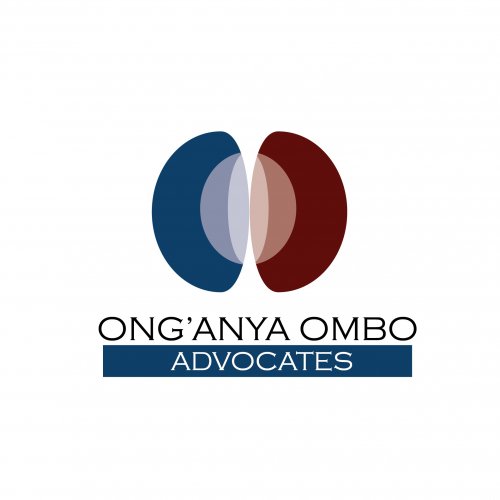Best Structured Finance Lawyers in Kenya
Share your needs with us, get contacted by law firms.
Free. Takes 2 min.
Or refine your search by selecting a city:
List of the best lawyers in Kenya
Legal guides written by Adroit Law LLP:
- Kenya Launches Digital Nomad Visa: A Gateway for Remote Workers
- Navigating the Payment System License Maze in Kenya
- Navigating the Complexities of Mining Licenses and Permits in Kenya: A Look into Artisanal and Large-Scale Operations
About Structured Finance Law in Kenya
Structured finance refers to complex financial instruments offered to borrowers who typically have unique and sophisticated financing needs. In Kenya, structured finance has become increasingly relevant as businesses, financial institutions, and investors look for ways to manage risk, raise capital, and unlock liquidity beyond traditional loan arrangements. Structured finance can include asset-backed securities, securitizations, project finance, syndicated loans, and other tailored financial structures.
The legal landscape governing structured finance in Kenya has grown in sophistication in recent years to support these innovative financial products. This involves adherence to various laws regulating banking, securities, capital markets, insolvency, and taxation.
Why You May Need a Lawyer
Structured finance transactions are often intricate and involve multiple parties, cross-border elements, and large sums of money. Engaging a lawyer with structured finance expertise can help you in several key situations, such as:
- Structuring and negotiating complex syndicated loans or securitizations
- Ensuring compliance with the Capital Markets Authority and Central Bank of Kenya regulations
- Drafting and reviewing detailed transactional documents
- Advising on risk management and mitigation measures
- Handling tax implications and cross-jurisdictional issues
- Resolving disputes involving structured finance arrangements
- Assisting with due diligence and disclosure obligations
- Representing parties in insolvency and enforcement processes
Because of the potential risks and the regulatory environment, having specialist legal support can be crucial for protecting your financial and legal interests.
Local Laws Overview
Kenya has a regulatory framework that supports structured finance, governed by several key laws and regulatory bodies. Some of the most relevant legal aspects include:
- Capital Markets Act and Regulations: Governs the issuance of asset-backed securities and securitizations. The Capital Markets Authority (CMA) is charged with regulating and licensing relevant activities.
- Banking Act: Sets requirements for financial institutions involved in syndicated lending or other structured finance activities.
- Companies Act, 2015: Regulates special purpose vehicles (SPVs), corporate structuring, and company disclosures.
- Insolvency Act: Addresses creditor and debtor protections, enforcement, and restructuring of obligations in the event of insolvency.
- Income Tax Act: Tax implications on various structured finance products, including interest income, capital gains, and deductibility of expenses.
- Other statutes: Depending on the transaction, laws related to land, intellectual property, and international treaties may apply.
Participants in structured finance must ensure compliance with anti-money laundering rules and be mindful of cross-border regulatory considerations.
Frequently Asked Questions
What is structured finance?
Structured finance is a category of complex financial arrangements that are specifically designed to meet unique funding needs, often using asset-backed securities, pooled loans, or other custom instruments.
Who are the key regulators for structured finance in Kenya?
The Capital Markets Authority and the Central Bank of Kenya are the primary regulators for most structured finance activities. Other regulatory bodies may be involved depending on the transaction.
What are the most common structured finance products in Kenya?
Asset-backed securities, project finance structures, syndicated loans, and securitization of receivables are among the most common structured finance products seen in Kenya.
What is a Special Purpose Vehicle (SPV) and what role does it play?
An SPV is a separate legal entity created to isolate financial risk. In structured finance, it is often used to hold assets or securities and facilitates the transfer or pooling of assets away from the originator.
How does Kenyan law treat securitization?
Securitization is regulated under the Capital Markets Act and specific CMA regulations. Issuers must obtain approvals, provide disclosures, and meet continuing compliance obligations.
Can foreign investors participate in structured finance in Kenya?
Yes, foreign investors can participate, subject to compliance with Kenyan investment, tax, and regulatory requirements. Some transactions may need approval from the Central Bank of Kenya or other regulators.
What legal risks should parties be aware of?
Risks can include regulatory non-compliance, tax liabilities, counterparty defaults, enforceability of contracts, insolvency proceedings, and cross-border legal conflicts.
How are disputes in structured finance typically resolved?
Most structured finance disputes are resolved through negotiation, arbitration, or litigation, based on the specific terms in transaction documents.
What due diligence is needed for structured finance transactions?
Extensive legal, financial, and operational due diligence is needed, including verification of asset ownership, review of regulatory compliance, and assessment of all involved parties.
Why should I use a lawyer for structured finance matters?
Lawyers provide expertise in navigating complex legal, regulatory, and financial issues, ensuring you are protected from unnecessary risks and that all agreements are enforceable and compliant.
Additional Resources
If you need more information or support, consider the following Kenyan resources:
- Capital Markets Authority (CMA): Offers guidance on the regulation and licensing of structured finance products.
- Central Bank of Kenya (CBK): Regulatory information for financial institutions and cross-border transactions.
- Law Society of Kenya (LSK): Directory of qualified legal practitioners in finance and corporate law.
- Institute of Certified Public Accountants of Kenya (ICPAK): Resources and professionals for tax and audit guidance.
- Kenya Bankers Association: Industry insights and policy advocacy in banking and finance.
Next Steps
If you are considering a structured finance arrangement or need legal advice:
- Start by clarifying your goals and gathering background information about the proposed transaction or challenge.
- Consult with a lawyer or law firm experienced in structured finance and financial regulations in Kenya. Prepare a list of questions and any documents you have.
- Work with your legal adviser to conduct due diligence, identify regulatory requirements, and structure the transaction appropriately.
- Ensure that all agreements, disclosures, and filings are properly completed before finalizing any deal.
- Maintain open communication with your legal counsel during and after the transaction to manage risks and address any arising issues.
Taking professional legal advice early can safeguard your interests and ensure your structured finance ventures are successful and compliant with Kenyan law.
Lawzana helps you find the best lawyers and law firms in Kenya through a curated and pre-screened list of qualified legal professionals. Our platform offers rankings and detailed profiles of attorneys and law firms, allowing you to compare based on practice areas, including Structured Finance, experience, and client feedback.
Each profile includes a description of the firm's areas of practice, client reviews, team members and partners, year of establishment, spoken languages, office locations, contact information, social media presence, and any published articles or resources. Most firms on our platform speak English and are experienced in both local and international legal matters.
Get a quote from top-rated law firms in Kenya — quickly, securely, and without unnecessary hassle.
Disclaimer:
The information provided on this page is for general informational purposes only and does not constitute legal advice. While we strive to ensure the accuracy and relevance of the content, legal information may change over time, and interpretations of the law can vary. You should always consult with a qualified legal professional for advice specific to your situation.
We disclaim all liability for actions taken or not taken based on the content of this page. If you believe any information is incorrect or outdated, please contact us, and we will review and update it where appropriate.
Browse structured finance law firms by city in Kenya
Refine your search by selecting a city.

















